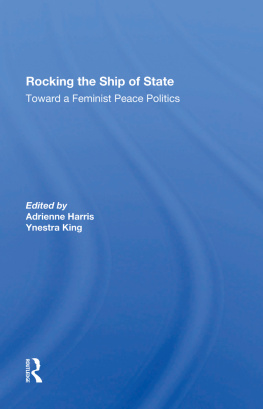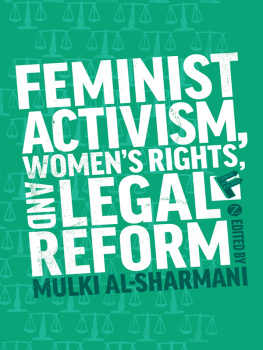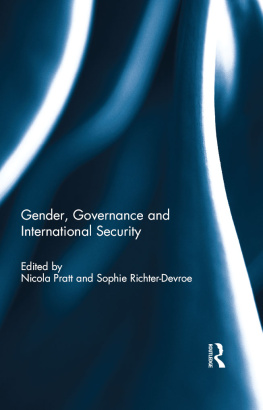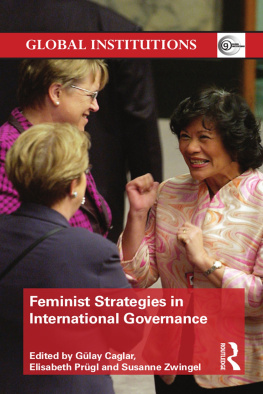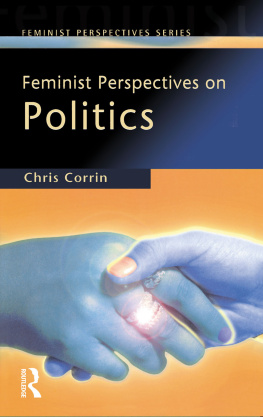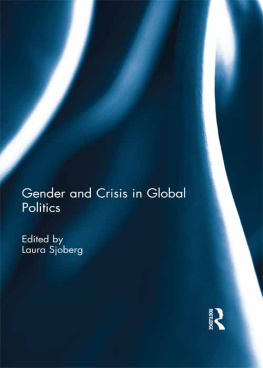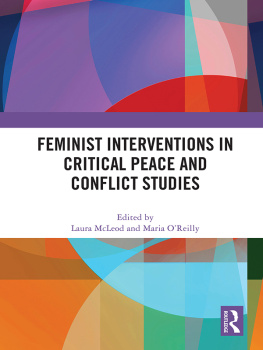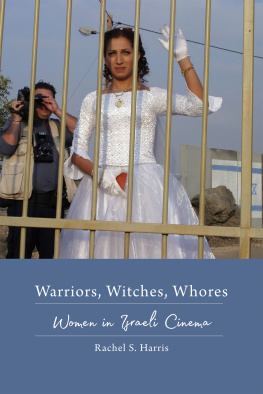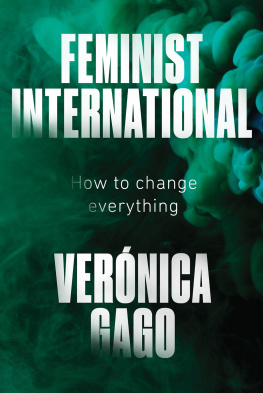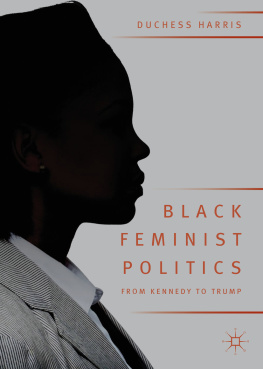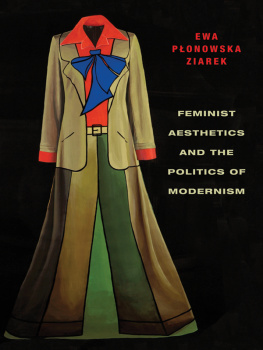ROCKING THE SHIP OF STATE
Feminist Theory and Politics
Virginia Held and Alison Jaggar , Series Editors
Titles in This Series
Rocking the Ship of State: Toward a Feminist Peace Pontics, edited by Adrienne Harris and Ynestra King
Reproducing the World: Essays in Feminist Theory, Mary O'Brien
Sexual Democracy: Women, Oppression, and Revolution, Ann Ferguson
ROCKING THE SHIP OF STATE
Toward a Feminist Peace Politics
edited by
Adrienne Harris
Rutgers University
Ynestra King
Institute for Social Ecology
First published 1989 by Westview Press
Published 2019 by Routledge
52 Vanderbilt Avenue, New York, NY 10017
2 Park Square, Milton Park, Abingdon, Oxon OX14 4RN
Routledge is an imprint of the Taylor & Francis Group, an informa business
Copyright 1989 by Taylor & Francis, except for Chap. 1 ( Dorothy Dinnerstein), Chap. 3 ( Ann Snitow), Chap. 4 ( Sara Ruddick; reprinted by permission of Beacon Press), Chaps. 6 and 14 ( Gwyn kirk), Chap. 7 ( Nancy Hartsock), Chap. 8 ( Carol Cohn), and Chap. 11 ( University of Chicago Press). "The Death of the Ball Turret Gunner" (p. 75) and excerpt from "Losses" (p. 75) from The Complete Poems by Randall Jarrell. Copyright 1945, 1948, 1951, 1955 by Mrs. Randall Jarrell. Copyright renewed 1968, 1969, 1972, 1975 by Mrs. Randall Jarrell. Reprinted by permission of Farrar, Strauss and Giroux, Inc.
All rights reserved. No part of this book may be reprinted or reproduced or utilised in any form or by any electronic, mechanical, or other means, now known or hereafter invented, including photocopying and recording, or in any information storage or retrieval system, without permission in writing from the publishers.
Notice:
Product or corporate names may be trademarks or registered trademarks, and are used only for identification and explanation without intent to infringe.
Library of Congress Cataloging-in-Publication Data
Rocking the ship of state: toward a feminist peace politics / edited
by Adrienne Harris and Ynestra King.
p. cm. (Feminist theory and politics series)
ISBN 0-8133-0710-4 ISBN 0-8133-0711-2 (pbk.)
1. Women and peace. 2. Feminism. I. Harris, Adrienne.
II. King, Ynestra. III. Series.
JX1965.R63 1989
327.1'72'088042dc19 89-30340
CIP
ISBN 13: 978-0-367-28617-0 (hbk)
To the memory of Barbara Deming and to all our children:
Katherine, Justin, Maiga, and Lyle
A.H.
Laura, Toby, Andrew, Robbie, Hannah, and Lisa
Y.K.
This project emerges out of the collective thinking of the group of women who are its contributors. It also springs from a political need to put feminist minds to work on the questions and problems that constitute the issue of "peace."
The group's work was supported for several years by the Institute for Research on Women at Rutgers University with Lourdes Benera and Phyllis Mack as our particular guiding angels, and by a loan from the People's Life Fund.
At a later stage, the Canadian Broadcasting Corporation supported the production of a three-hour documentary, "Woman as Peacemaker," broadcast as part of the radio series Ideas. Adrienne wishes to thank Bernie Lucht and Lister Sinclair for their support of the documentary but especially to thank the producer, Sara Wolch, a loving and exacting critic. Sara's combination of demand and support profoundly aided the development and deepening of this analysis in which women and peace are linked.
Also, while we worked on this book, Ynestra cofounded the WomanEarth Feminist Peace Institute to develop connections between feminism, ecology and peace, and philosophy and spirituality. She thanks Starhawk, Gwyn Kirk, Luisah Teisch, Rachel Bagby and Rachel Sierra for their teachings, support, and struggle in making a multiracial, feminist peace movement more possible. Ynestra also thanks the Feminist International for Peace and Food for the Peace Tent at the United Nations Decade on Women held in Nairobi, a demonstration of global feminism in action, and the New York City Women's Pentagon Action. All these experiences contributed to the shaping of this book.
Within our original group Sara Ruddick and Ann Snitow have continued to provide editorial muscle, warm words over late night phone calls, and the soothing of many desperations.
Because this work has been brewing for a number of years, there is a wonderful host of friends and colleagues who have sharpened the analyses and work developed in this book. We thank Jessica Benjamin, Mary Marshall Clark, Muriel Dimen, Irene Dowd, Virginia Goldner, Linda Metcalf, Eileen Monahan, Grace Paley, Robert Sklar, Virginia Tiger, Marilyn Young, the WomanEarth Feminist Peace Institute, the Women's Studies Program at the University of Southern Maine, the Feminist International for Peace and Food, the Seminar on Motherist Movements of the Barnard College Women's Center, and the Seminar on Psychoanalysis and Gender at the New York Institute for the Humanities.
We also thank Elisse Morss, Katherine Tender, and Susan Sklar for typing, transcribing, and editorial assistance.
At Westview Press, we thank Spencer Carr for calm and care and our editor, Jeanne Campbell, and copyeditor Jan Kristiansson. This book, we hope, is not standard academic fare. We wanted distinct voices rhetoric and passion as well as argument and footnotes. We have all this distinct and different music, this play of contradition and difference, and we thank Westview and the editorial staff for permitting this particular hybrid of academics and activism to flower.
To Alison Jagger and Virginia Held, the editors of this series, thanks for support and inspiration.
Adrienne Harris
Ynestra King
ADRIENNE HARRIS and YNESTRA KING
A feminist is a person who used to be a woman until she saw the light.
A feminist peace activist is a person who used to be a woman and who in the interest of peace may become one again.
Throughout this century, women have worked for peace on the basis of traditional and idealized visions of womanhood and femininity. As mothers, as preservers of life, as "angels of consolation," they spoke and acted in the name of peace. It was a brilliant strategy. Consigned to the relative powerlessness of the private sphere, women moved into public political life while maintaining the protective cover of their traditional role. Caretakers and spiritual centers in the domestic sphere, they thought they could take public power only by becoming housekeepers and moral mothers to the nation.
This powerful ideal of moral motherhood provided the rationale for middle class women's peace groups at the beginning of the twentieth century and in the period before and during World War I. Protest was conducted in a ladylike manner. Women took pains to present themselves as decorous and respectable. The appeal to peace was often made in the name of children.
But this political strategy, so powerful for a century of militant woman's peace movements, is now problematized in light of the critique of gender emerging from the feminist movement. When seen through the prism of modern feminism, the traditional woman's peace movement is based on constricting stereotypes and rigid sex roles that diminish everyone.
During the 1980s, a powerful feminist peace movement has emerged, intentionally locating itself on the contradictory terrain of women, peace, and feminism. Women's peace activities in Western Europe and the United States have been among the most visible and militant practices in the current political landscape. At the same time, feminists have critiqued the very woman-based and woman-identified forms of political and social life that this movement draws on. What is emerging from this contradictory situation is a feminist peace movement, paradoxically grounded both in traditional women's culture and contemporary feminism. Rather than diminish this contradiction, this book has been developed on the premise that women's peace organizing is strengthened and transformed through confrontation with feminist questions of gender.

